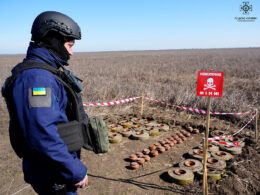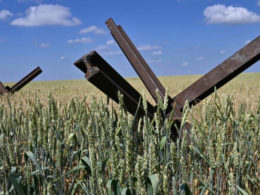On 17 March, Czech Agriculture Minister Marek Výborný announced on Czech TV that the Czech Republic will propose a ban on importing Russian and Belarusian grain into the EU at next week's European Council meeting, according to Novinky.
"We will push for grains and oilseeds to be on the sanctions list and not go to Europe," said Výborný, adding, "There is no reason to support the aggressor by buying Russian grain in Europe."
Prime Minister Petr Fiala is going to present Czechia's position next week at the European Council meeting. Then minister Výborný will present it again during the meeting with the EU agriculture ministers.
In 2022, the EU imported 1.5 million tonnes of grain from Russia, according to Eurostat, exceeding pre-war levels, Novinky says. Spain, among others, imported significantly more due to domestic crop failure.
The minister assured that a potential ban on Russian grain imports should not significantly impact food prices, citing the Czech Republic's export surpluses and a global surplus harvest.
In February, Latvia's Agriculture Minister Armands Krauze called for an EU-wide ban on Russian grain imports and sanctions on Russian food exports as Latvia became the first EU member to restrict Russian and Belarusian agricultural products until July 2025, applicable only to goods staying in Latvia, not in transit to other EU states.
In 2023, Russia and Belarus exported agricultural products worth $173 million to Poland, surpassing pre-2022 levels. Despite a block on Ukrainian grain and oilseed imports since September 2023, imports from Russia and Belarus more than doubled.
Read also:
- Poland’s paradox: blockading Ukraine trade, continuing Russia imports
- Latvian farmers protest Russian, Belarusian food imports
- Ukrainian crops damaged again at Polish rail crossing
- UK, Latvia сo-lead drone coalition to supply thousands of drones to Ukraine





